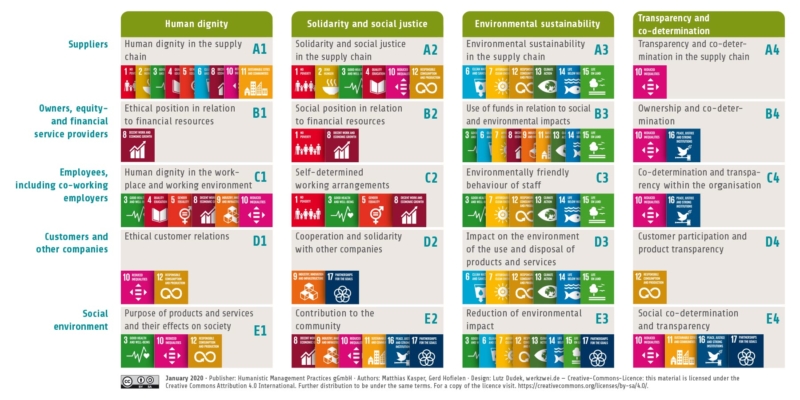Businesses act for the Common Good and the SDGs
Guidelines by Matthias Kasper and Gerd Hofielen
These guidelines are aimed at companies and organizations that are concerned with the UN’s Sustainable Development Goals (SDG) and wish to contribute to their implementation. The model of the Economy for the Common Good (ECG) and its control instrument the Common Good Balance Sheet serve as essential strategic and business management tools to help business reach these goals. According to a study conducted at the University of Bremen, Germany, the ECG model is an ambitious approach to assist in implementing the SDGs.
These guidelines are action-oriented. They help companies find ways to implement the SDGs and to examine to what extent they can use the Common Good Balance Sheet as a corporate and organizational compass.
The guidelines provide a general insight into the United Nations‘ Agenda 2030 and show what role companies can play in fulfilling the SDGs. Furthermore, they examine what contribution the Economy for the Common Good can make to the Sustainable Development Goals and to what extent companies can use the Common Good Balance Sheet to increase their SDG performance.
The main section of the guidelines looks closely at all 17 Strategic Development Goals and explains which common good-oriented business practices can be used to promote a specific SDG. It first shows which global challenges the SDG in question should address from the point of view of the United Nations and in which areas of action companies can contribute to the implementation of the SDGs.


